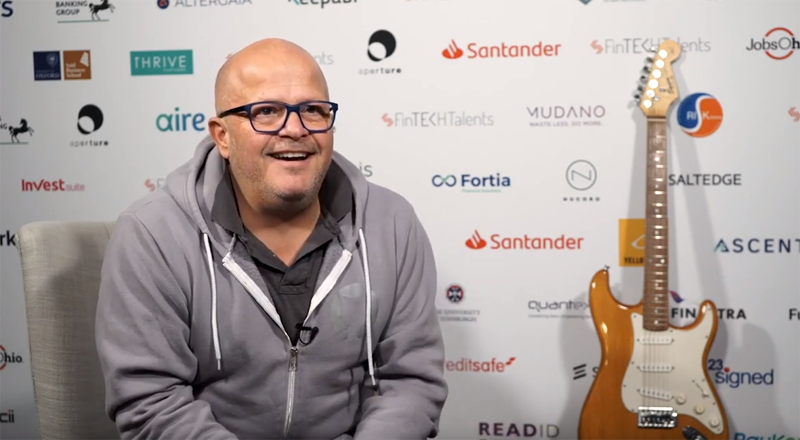
We sat down with Nigel Abbott, Regional Director, North EMEA at GitHub to talk about how Open Source fits in today’s regulatory and competitive landscape at FinTECHTalents 2019.
Watch the video now.
What is the role of GitHub and Open Source software in innovation?
You go from a launching a product in 2008 with no subscribers to today, in 2019, with over 40 million. It’s very Darwinian in terms of its growth and the exploitation of the platform by the software engineers powered for the greater good, I think in many respects, by the open-source community.
The way that has been curated, the way of working that’s been created on the GitHub platform, has found huge favour in the Open Source world to the point where those models are now finding their way into the enterprise.
Yeah, we’ve crossed the chasm if you like with regards to software engineering.
Are Open Source and financial services compatible or will regulation always get in the way?
You can’t have one without the other. Innovation within financial services is now commonly regarded as do-or-die and it’s table stakes for financial services. But it has to be done within a regulatory framework.
Both the regulators, but more importantly your customers, there’s zero tolerance. The regulators are there to hopefully protect any snafus from happening in the industry. It doesn’t always happen – we’ve only got organisations like Equifax from 2017 – to see where and how it can go wrong. But regulation wouldn’t really have protected you on that because it’s still people and processes that are to blame.
Do I think regulation, the regulatory bodies are slowing innovation down? I don’t believe so. I think it’s the weight of some of the larger financial organisations and the fear of that regulatory compliance that is actually bigger than the regulatory compliance itself. They have a huge amount of legacy debt, technical debt that they have to carry around with them that the remaining FinTech world doesn’t have – it’s simply not there.
They don’t have to worry about 40-year old legacy mainframe systems. They’re able to innovate much more quickly. It’s a symbiosis – it’s a balance, it’s got to be a balance.
Are all companies software companies?
You can’t ask me that question and not expect me to say that yes, all software companies are software companies. I think the only companies I can think of that aren’t software companies are my window cleaner, which is him and his wife and his father. They’re not a software company because we do everything over the phone. Outside of that I think everybody is emerging to become reliant upon software.
Marc Andreessen coined the expression back in 2005, it was Software’s eating the world. I think that was a fairly bold statement back in 2005, but certainly as we sit here in 2019 you can’t move. Pretty much every interaction of your digital world, your world, has been impacted by digital. Especially with the advent of the iPhone (other phones are available). We’re surrounded by this stuff.
Is domain expertise the differentiator, absolutely. I think this pertains to the 10 to 20 percent of the custom IP that you’re injecting into your projects. That’s where the domain expertise comes from. That’s where the fight for competition and the fight for skills is going to get increasingly hotter.
You want the guy that’s written the best projects. You want the team of people that he sits in that have shown that innovation delivers that shareholder value. So yeah, you need both.











